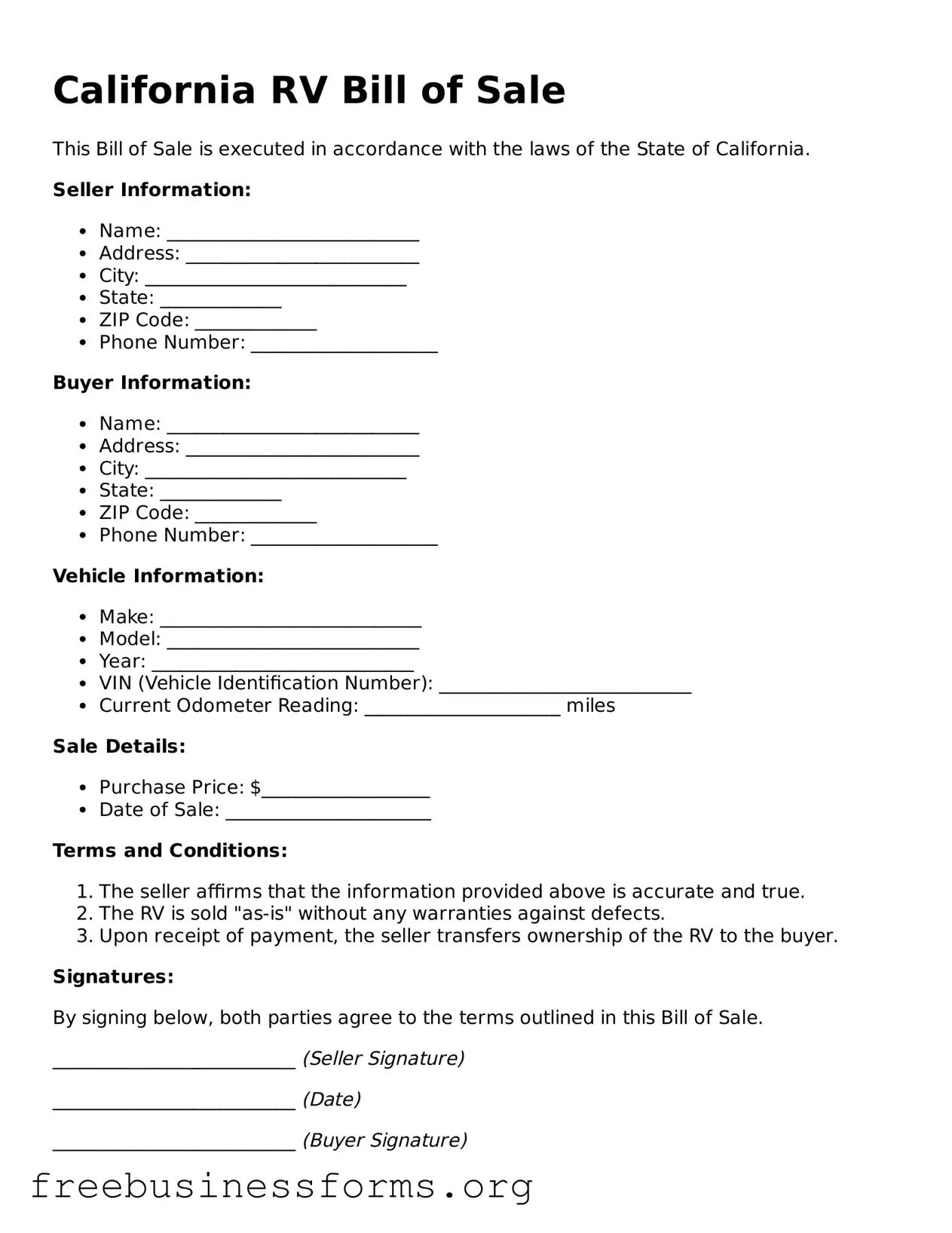Blank RV Bill of Sale Template for California
The California RV Bill of Sale form is a crucial document used to record the sale of a recreational vehicle in California. This form serves as proof of the transaction between the seller and the buyer, ensuring that both parties are protected. Understanding its importance can help streamline the buying and selling process, making it smoother for everyone involved.
Open Form Here

Blank RV Bill of Sale Template for California
Open Form Here

Open Form Here
or
↓ PDF File
Quickly complete this form online
Complete your RV Bill of Sale online quickly — edit, save, download.